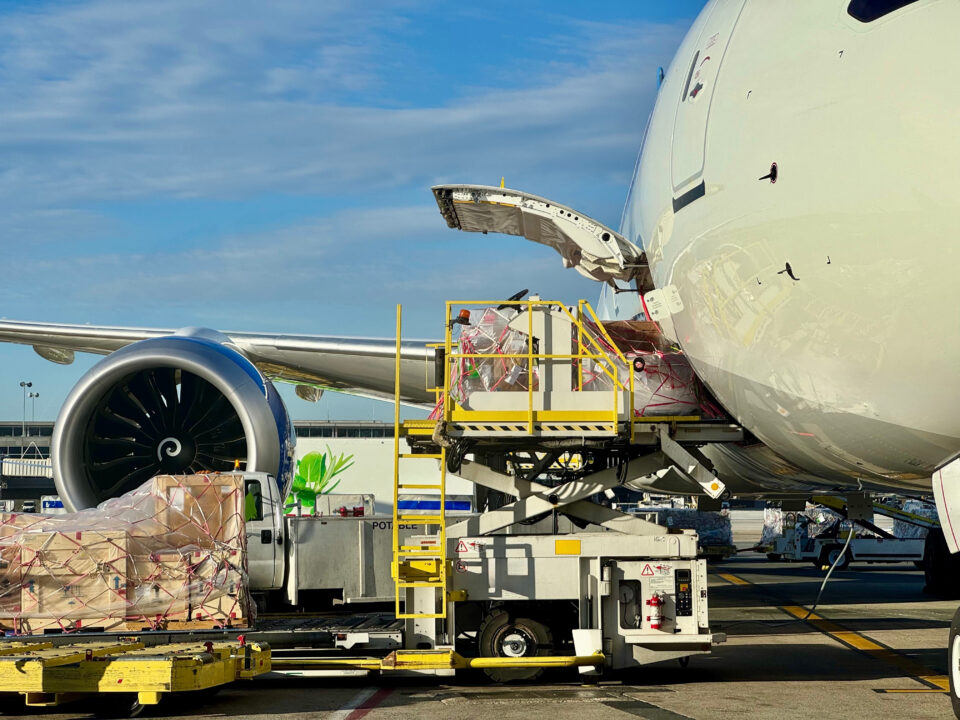The Food and Farm for Health initiative is strategically developed in collaboration with the Cool Chain Association (CCA) and the Humanitarian Logistics Association (HLA)
Brussels/Miami, May 6, 2025 – Pharma.Aero and TIACA (The International Air Cargo Association) have partnered on the Food and Farm for Health project to underscore the economic value and the dual role of air cargo in healthcare access and economic development in low- and middle-income countries. Strategically developed in collaboration with CCA (The Cool Chain Association) and HLA (The Humanitarian Logistics Association, the project seeks to optimize air cargo’s potential to deliver life-saving medicines while simultaneously supporting local agricultural economies.
Frank Van Gelder, Secretary General of Pharma.Aero, provides insight into the project’s goals and impact: “The Food and Farm for Health Project is about leveraging air cargo to address two critical needs in low- and middle-income countries: healthcare access and economic empowerment. We, at Pharma.Aero, recognized a critical gap and initiated this project to use air cargo as a dual-purpose tool: flying in life-saving pharmaceuticals and medical supplies while flying out perishable agricultural products—like fruits, vegetables, and flowers—from local farmers to Western markets.
By utilizing available cargo space on return flights, we create a more cost-effective, efficient trade route. This approach not only ensures faster access to essential medicines and vaccines, but also opens new market opportunities for farmers, boosting local economies and providing better access to international markets”, said Van Gelder.
“Air cargo is more than a mode of transport — it’s a critical lifeline for economies and communities across the globe” commented Steven Polmans, Chair of TIACA. “The completion of our Global Market Evolution Analysis marks a major milestone in understanding how perishable goods and pharmaceuticals move, especially in regions where access means everything. From Kenya’s flower exports supporting millions of jobs to India’s seafood sector driving billions in trade, our work confirms that airfreight is a catalyst for opportunity, health, and resilience.
As TIACA, we’re committed to building smarter, more equitable supply chains that serve both people and planet. This project is a key step in advancing that vision — and we thank all contributors for bringing their expertise and passion to this important work.”
Leveraging the expertise of specialists in pharmaceutical logistics, humanitarian supply chains, and temperature-sensitive freight, the project will analyze global air cargo movements, assess their economic impact and evaluate their role in advancing the United Nations Sustainable Development Goals (SDGs).
The Food and Farm for Health initiative reinforces the shared mission of all four organizations to support equitable and sustainable access to healthcare and economic resilience globally.
The Cool Chain Association (CCA) is a non-profit organisation bringing together all parts of the temperature-sensitive supply chain to create an impact with visible and measurable results both for companies and for society.
“Partnerships, connections and balance, as in so many areas of life, is going to be key to the success of this groundbreaking initiative”, highlighted Ian Buck, board member of the CCA. “Aligning healthcare providers in their mission to provide lifesaving treatments and preventative medicines to developing and emerging regions, and in turn giving those regions an economic reach for their home grown and produced perishable products is the balance we seek. Highlighting those connections and looking to forge partnerships and understanding with solid data at either end, we hope this will provide access and benefits for all.”
The Humanitarian Logistics Association (HLA) is a UK-based non-profit NGO whose members work on an individual basis or in partnerships, to respond to global emergencies. Established in 2009, HLA empowers logisticians to deliver humanitarian aid and development assistance more effectively, by facilitating better connections between supply and demand, and enabling cross sector learning, innovations and partnerships.
“The aid sector recognises the need to change but is struggling to bring about transformation through evolution. There is a huge need to find innovative ways to strengthen local supply chain capability”, says George Fenton, CEO of HLA. “The air cargo industry is vital to the fast delivery of humanitarian aid, yet the last mile is still the greatest challenge. The Food and Farm for Health project will provide valuable insights to support effective, sustainable, change through improved cross-sector coordination, collaboration and knowledge sharing.”
Pharma.Aero is a global cross-industry collaboration platform and thought leader in Life Science and MedTech logistics. Through pioneering projects and strategic partnerships—such as the Pharma Logistics Masterclass and Winter University—it drives innovation, knowledge sharing, and education across the Life Science and MedTech supply chain and logistics sector. To learn more, visit www.pharma.aero.
The International Air Cargo Association (TIACA) supports its members and works with industry partners and regulators to advocate and drive change for a safe, profitable and united air cargo industry that embraces modern technologies and practices to sustainably and fairly serve trade and social development worldwide. For more, visit www.tiaca.org.


